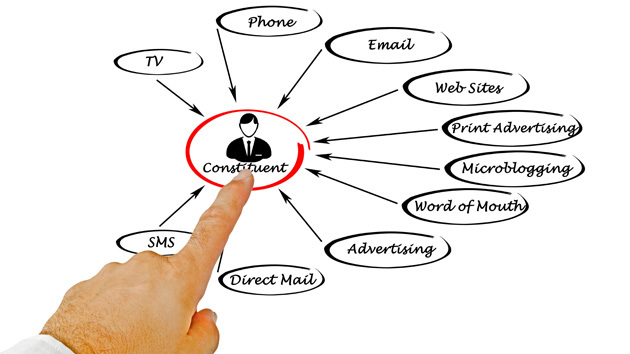TOPIC- GOVERNANCE(ACCOUNTABILITY and TRANSPARENCY)
Background History
•Political advertising is advertisements used for the purpose of appealing, directly or indirectly, for votes or for financial or other support in any election campaign. It includes usage of media from conventional to social media for this purpose.
•ECI in 2013 ruled that the model code of conduct and its pre-certified political advertisement rules will apply to the social media as well. Earlier, pre-certification was restricted to print and electronic media.
•Fake news, deep fakes and political advertising are the biggest challenges threatening the fundamentals of democracy.
•Google in its advertising policy of India has made it mandatory to submit a pre-censorship certificate from the ECI in order to run political advertisements on its platform. In doing so, Google has become the first Silicon Valley Company to comply with the ECI’s instructions.
Electoral Laws and Digital Media:
-EC is empowered under Article 324 of the Indian Constitution to conduct free and fair elections in the country. Under this Article ECI draws power to regulate political advertising.
-Section 43A, The Information Technology Act, 2000 provides compensation for failure to protect data by body corporate. However, it has limited applicability to political parties or to data brokers that market personal data at a massive scale. For instance, WhatsApp groups based on voter lists coupled with phone numbers and caste, gender and other sensitive information to target voters with propaganda without their consent.
-It is the need of the hour that the Electoral Laws in India must be drafted specifically into a new act giving powers to the authorities to deal with ever-growing area of digital media and its issues to ensure that the Elections are held in a truly fair and competitive manner and the true purpose of Democracy is served in a fair manner.
Political Advertising needs stricter regulation:
1) Democracy requires free and fair elections:
•Voters should be given all the details they need to make an informed decision
•Misinformation is proliferated and highly emotive subjects handled in ways that could easily be construed as manipulative. This harms the spirit of fair elections.
•The distribution of this manipulative content through TV and social media is proving destructive for the democracy.
2) Self-Regulatory System has not worked:
•Political parties are morally responsible to follow a code of conduct during elections.
•In the absence of independent controls, the only thing we are left to cling to in the hope that political campaigning follows some set of rules are the morals of politicians which is absurd.
•Politicians simply shrug off the issue and continue without any regulation
•Self-regulation model of media has failed and brought fissures to the surface and it needs to be regulated.
3) Freedom of speech does not grant the right to deceive:
•Freedom of speech provides that political advertising should not be strictly regulated. But freedom of speech is meant to ensure protection of diversity of opinion and the individual’s right to express in a reasonable manner.
•Lies, deception and treachery are not covered under freedom of speech to influence voting behavior. Manipulated content is incongruous with freedom of speech.
4) The blurred line between editorial content and advertising:
•Advertisements must be distinguishable from editorial content. However, by mimicking the style of a news program or documentary, party political broadcasts intentionally lose that distinction.
•Advertisements are often misleading and they can cause offences.
Problems:
•Targeting: Online advertising allows, especially on social networks, personalised targeting based on multiple attributes that wasn’t possible at the same level before. These platforms make it possible to go from manufacturing consent to manipulating consent. A person is continuously fed with information to vote for a particular party.
•Invisibility of online political advertising: In advertising on a social media platform, not everyone gets to know the sponsor of the advertisements. These advertisements are frequently treated as content.
•Online advertising is not subject to direct regulation.
•No limit to volume of advertising or spend in respect of referendums: statutory spending limits are not in place in parliamentary or Assembly elections.
•The speed at which disinformation can be spread and accessed online means is vulnerable as online platforms present a particular risk in relation to disinformation and deliberate bias.
•Particularly in respect of micro-targeting:
1)Opaqueness in privacy and consent controls
2) Influencing Outcomes unlawfully or in a concealed manner
Role of ECI in Regulation Online Political Advertising:
There is no clarity whether the pre-censorship regime is limited to paid advertisements and not on the content posted by political parties on their social media accounts. ECI has a role to define the contours of pre-censorship regime.
The ECI must ensure parity of treatment between political advertising on social media and traditional media.
The tools like WhatsApp have no longer remained personal messaging services and emerged as mass communication services. Indian political parties are using WhatsApp for mass messaging, often with hate filled messages. How should the law classify these messages sent to persons like a chain reaction without any cost?
Conclusion:
To summarize the efforts taken by the EC to tackle digital media, it would not be wrong to say that the self-regulations are not enough for the social media platforms to keep an eye over the content, the EC is having a hard time to enforce its powers not having specific laws to deal with the upcoming issues like propaganda spreading, fake news, paid news, et cetera for which the use of digital media and social media is being made.


